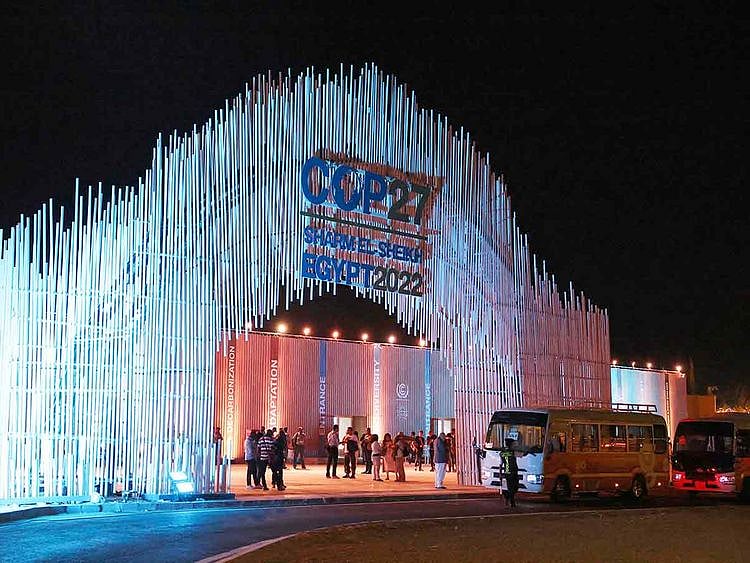UAE to showcase climate achievements at COP27, prepares to host COP28
The UAE has a rich record of achievements in climate action

Sharm El Sheikh, Egypt : During its participation in the 2022 Conference of the Parties of the United Nations Framework Convention on Climate Change (COP27), which will begin on Sunday, 6th November, the UAE will showcase its achievements in the areas of climate action, energy transition and diplomatic campaigns to support international climate action, as well as its preparations to host COP28 next year.
Through its close partnership with Egypt, the UAE will link the outcomes of COP27 and COP28 to support climate action and raise awareness of its visions and efforts to achieve sustainability.
The UAE has a rich record of achievements in climate action, which it considers an opportunity to help find practical solutions to this global issue that affects everyone, in line with its efforts aimed at diversifying its economy and improving the skills of the youth.
The UAE is among the world's largest humanitarian aid donors and provides direct aid during times of climate-related disasters and conflicts, whose repercussions are exacerbated by climate change. The country was the first in the region to sign and ratify the Paris Agreement in 2015 and announce a climate neutrality strategy for 2050.
Also Read
What is COP27? What you need to know about climate summit that starts Sunday in Sharm Al SheikhNegotiating our future: Youth set to grab power roles at COP27COP27: Conversations to watch at the climate summitDubai students’ sustainability message to be seen by world leaders at COP27 climate summit in EgyptUnder the Paris Agreement in 2015, COP21 member states must work to adopt ambitious climate requirements.
The ultimate goal of the United Nations Framework Convention on Climate Change (UNFCCC) is to stabilise greenhouse gas concentrations in the atmosphere, to prevent dangerous anthropogenic interference with the climate system within a timeframe that allows ecosystems to adapt naturally and enable sustainable development.
The Conference of the Parties to the UNFCCC, which takes place annually, is the largest annual conference of the United Nations (UN).
The UNFCCC has near-universal membership with 197 parties and is the parent treaty of the 2015 Paris Agreement, whose main objective is to keep the average global temperature rise this century as close as possible to 1.5°C above pre-industrial levels.
The UAE announced a plan to increase the number of mangrove trees to 100 million by 2030, to promote natural solutions to limit the repercussions of climate change, protect biodiversity and help create a natural carbon store.
The UAE hosts the headquarters of the International Renewable Energy Agency (IRENA) and has launched the Abu Dhabi Future Energy Company (Masdar), a pioneer in the field of renewable energy.
In September 2022, the UAE launched the updated version of the second edition of its Nationally determined contributions (NDCs), with the aim of reducing carbon emissions by 31 percent by 2030.
The UAE is a leading global investor in renewable energy projects, allocating US$100 billion by 2030 for projects in over 70 countries. It is also empowering communities around the world and delivering sustainable solutions, through initiatives such as the Zayed Sustainability Prize.
The UAE is strengthening the capacities of the youth, through hosting establishments such as the Mohamed bin Zayed University of Artificial Intelligence.
The UAE has three of the largest solar power plants in the world and is the first country in the region to utilise carbon capture and storage technology on a large-scale, while diversifying its sources of emission-free energy, including peaceful nuclear energy and hydrogen.
Sign up for the Daily Briefing
Get the latest news and updates straight to your inbox
Network Links
GN StoreDownload our app
© Al Nisr Publishing LLC 2026. All rights reserved.